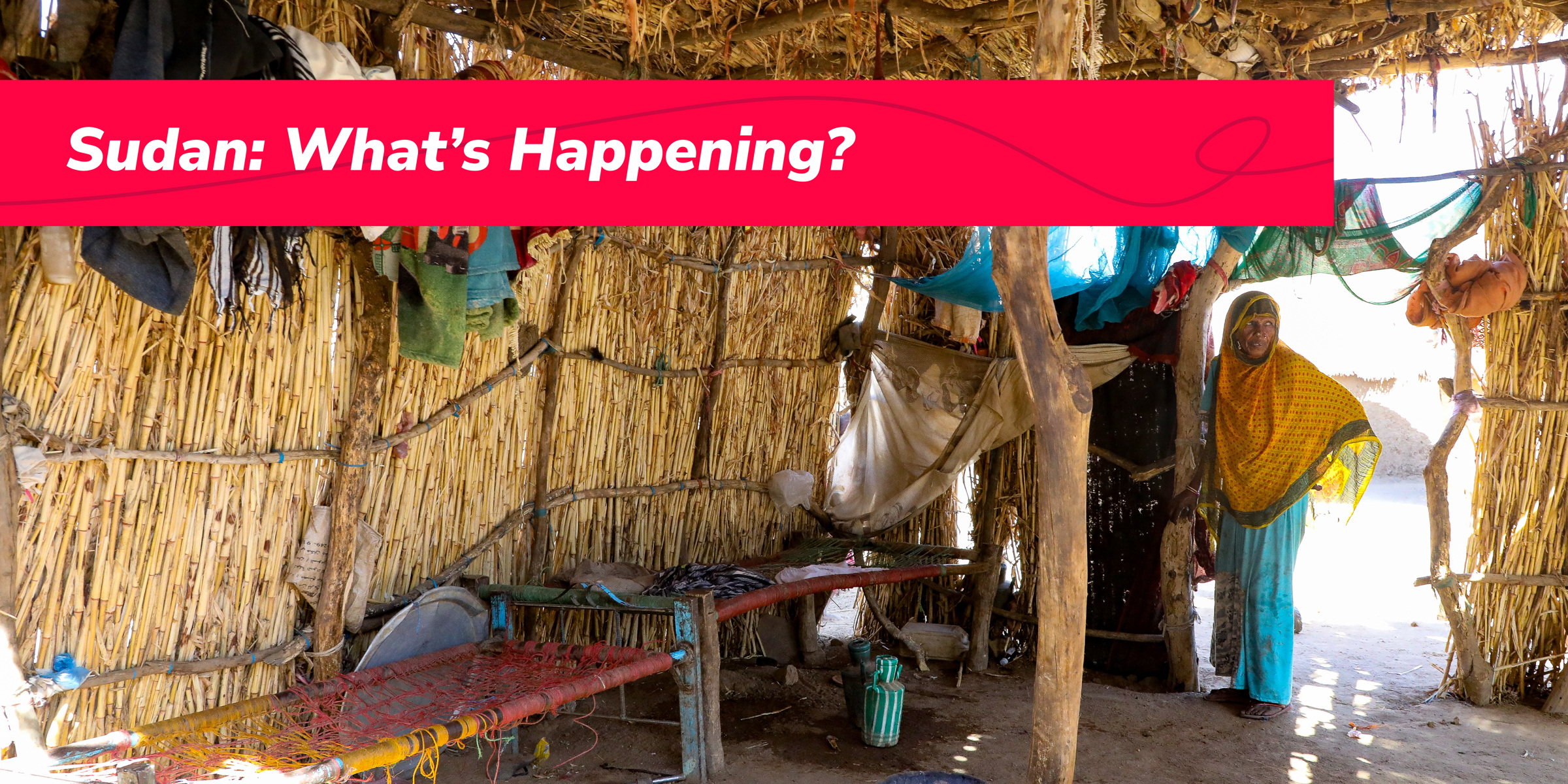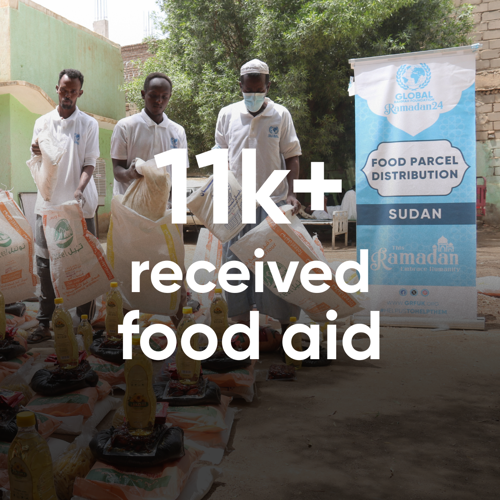What is happening in Sudan?
As Save the Children said: Sudan's not trending. But it should be.

Almost 25 million people across Sudan require humanitarian assistance. But many people still don't know what's happening. We don't see it in the media every day. We don't see discussions online in the mainstream. It's the world's biggest humanitarian crisis, yet it's often overlooked. The Sudanese civil war has changed the course of people's lives forever. We're answering common questions about the Sudan conflict below.
What is happening in Sudan?
A civil war between the Sudanese Armed Forces (SAF) and Rapid Support Forces (RSF) has forced millions to flee their homes, creating large-scale displacement, both within Sudan and neighbouring countries like Chad and South Sudan. Specifically, over 12 million internally displaced people (IDPs) have been uprooted and a further million people forced to seek refuge in nearby countries.
Now, Sudan’s infrastructure has collapsed, especially in Khartoum, Darfur & other key areas. The influx of displaced people has overwhelmed host communities, causing economic loss and a massive humanitarian toll. It has become difficult to help everyone and civilians are often left without essential services.
Which areas are most affected?
Darfur, Khartoum, Blue Nile, South Kordofan and Port Sudan are among the worst-affected areas. Many families are displaced along the River Nile corridor and struggle to access food, clean water and health facilities. Furthermore, Darfur remains one of the deadliest areas in the region, with large-scale displacement and humanitarian need. Parts of Khartoum have also been heavily damaged, with key services interrupted.
Regional Impact: What does Chad have to do with Sudan?
Conflict in Sudan has resulted in over 1 million refugees seeking safety in Chad and neighbouring countries. This has heavily impacted the country's already limited resources, increasing strain on the economy and making it harder to meet the needs of both refugees and the local population. Chad assists Sudanese refugees under joint operations with UNHCR.
How is the conflict affecting everyday life?
Displaced civilians suffer daily from shortages of clean water, sanitation and hygiene (WASH). Access to basic food and shelter is also limited. Pregnant women and children are especially vulnerable, with many forced to stay in makeshift shelters lacking adequate medical supplies or clean water.
Additionally, hospitals and medical facilities are overwhelmed, with the healthcare system almost entirely collapsed in many areas. The humanitarian toll on families is severe, with daily struggles for survival, basic nutrition and medical care.
Which diseases are spreading?
A large cholera outbreak has struck several areas, including Khartoum, Darfur, White Nile and other areas. The poor state of water and sanitation systems has worsened the spread.
The World Health Organization reports it has deployed response teams, improved water quality and established cholera treatment units in multiple states. In Darfur alone, 40 deaths were recorded in a single week and over 2,300 cholera patients were treated by MSF.
Other disease outbreaks are also persistent. Malnutrition is widespread and health partners are working with mobile clinics, vaccination programmes and nutrition supplies to respond.
Is Sudan experiencing famine?
Yes. A combination of conflict, crop disruption, displacement and rising food prices has pushed many regions into famine-like conditions. A staggering 637,000 people face catastrophic levels of hunger (famine-level). This is the highest amount anywhere in the world (World Food Programme). In 2025, 770,000 children are expected to suffer from severe acute malnutrition (UNICEF).
Millions face food insecurity and malnutrition rates (especially among children) are alarmingly high. Refugees fleeing Sudan also arrive malnourished, putting further pressure on humanitarian systems in host countries that may already be in challenging circumstances.
What's the climate impact?
Beyond the civil war, climate change is intensifying the crisis. Droughts, erratic rainfall and landslides have damaged farmland and infrastructure. These environmental stresses worsen food shortages and displace families, further burdening the fragile health and water systems.
Sudan Crisis, Summarised
It's the world's biggest displacement crisis. Darfur, Khartoum and Blue Nile are suffering deeply, every single day. The health system is on the verge of collapse, with disease outbreaks like cholera spreading, and malnutrition extremely severe. Climate change worsens the crisis through floods, droughts and food insecurity. Despite this, Sudan receives limited attention. But with your help, we can continue to save lives.
Who is providing aid?
Global Rahmah Foundation works in Sudan, distributing humanitarian aid to families throughout the year.
29,000+ Supported 2023 - 24
We distributed humanitarian aid in the eastern province of Kassala, one of the largest host areas for internally displaced people in Sudan.


We further distributed water to the community, lowering the spread of disease and improving sanitation.
Support Forgotten Families
Sudan can't remain forgotten. Too many lives are at risk. With your help, we can help people as they go through what may be the most difficult periods of their lives.
Our teams are on the ground, ready to support those in need. For just £5, you can donate a hot meal & feed people in Sudan. It may not seem like much to us, but for them it can provide a glimpse of hope - of a future - and a small step forward. Families urgently need our help. Our brothers and sisters can't remain forgotten.
